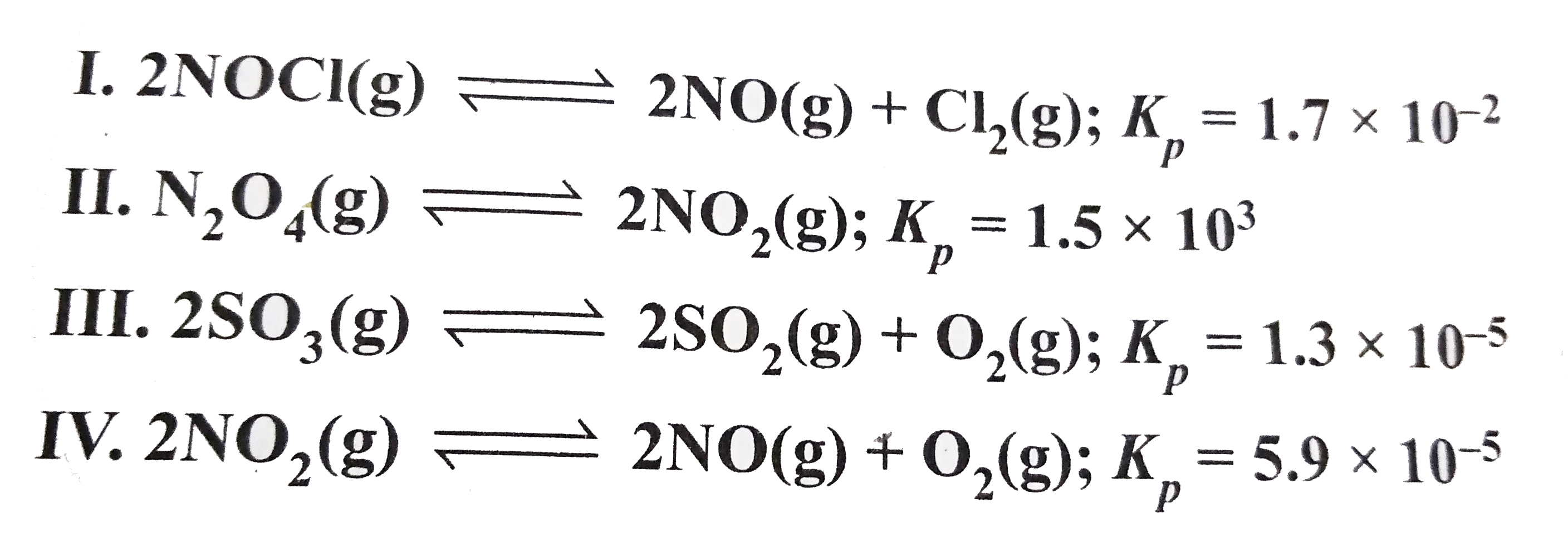Consider the following species: P3−,S2−,CI−,K+,Ca2+ and Sc3+
(i) What is common in them?
(ii) Arrange them in the order of decreasing ionis radii.
The correct Answer is:(i) Each one of these ions contains 18 electrons and hence all are isoelectronic ions.
(ii) The ionic radii of isoelectronic ions decreases with the increases in the magnitude of the nuclear charge. For example, consider the isoelectronic ions :P3−,S2−,CI−,K'Ca2+ and Sc3+. All these ions have 18 electrons but their nuclear charges increase in the order: P3−(+15),S2−(+16),CI−(+17),K+(+19),Ca2+(+20)and Sc3+(+21). Therefore, their ionic radii decreases in the order: P3−>S2−>CI−>K+>Ca2+>Sc3+.
Step by step video, text & image solution for Consider the following species: P^(3-), S^(2-), CI^(-), K^(+), Ca^(2+) and Sc^(3+) (i) What is common in them? (ii) Arrange them in the order of decreasing ionis radii. by Chemistry experts to help you in doubts & scoring excellent marks in Class 12 exams.
Updated on:21/07/2023Topper's Solved these Questions
- PERIODIC TABLE & PERIODICITYBOOK - RESONANCECHAPTER - PERIODIC TABLE & PERIODICITYEXERCISE - Exercise-1
1 Videos
- PERIODIC TABLE & PERIODICITYBOOK - RESONANCECHAPTER - PERIODIC TABLE & PERIODICITYEXERCISE - Exercise-2
1 Videos
- PERIODIC TABLE & PERIODICITYBOOK - RESONANCECHAPTER - PERIODIC TABLE & PERIODICITYEXERCISE - MISCELLANEOUS SOLVED PROBLEMS
7 Videos
- P-BLOCK ELEMENTS (HALOGEN & NOBLE GASES)BOOK - RESONANCECHAPTER - P-BLOCK ELEMENTS (HALOGEN & NOBLE GASES)EXERCISE - APSP PART-3
22 Videos
- QUALITATIVE ANALYSISBOOK - RESONANCECHAPTER - QUALITATIVE ANALYSISEXERCISE - INORGANIC CHMISTRY(Qualitative analysis)
35 Videos
Similar Questions
Consider the following species:
N3−,O2−,Fө,Na⊕,Mg2+ and Al3+
a. What is common in them?
b. Arrange them in the order of increasing ionic radii.
View SolutionConsider the following species:
N3−,O2−,Fө,Na⊕,Mg2+ and Al3+
a. What is common in them?
b. Arrange them in the order of increasing ionic radii.
View Solution
Knowledge Check
Consider the isoelectronic series : K+,S2−,Cl− and Ca2+, the radii of the ions decrease as
ACa2+>K+>Cl−>S2−BCl−>S2−>K+>Ca2+CS2−>Cl−>K+>Ca2+DK+>Ca2+>S2−>Cl−Consider the ioselectronic series , K⊕,S2−,Clɵ,Ca2+, the radii of the ions decrease as
ACa2+>K⊕>Clɵ>S2−BClɵ>S2−>K⊕>Ca2+CS2−>Clɵ>K⊕>Ca2+DK⊕>Ca2+>S2−>ClɵK+,CI−,Ca2+,S2− ions are isoelectronic. The decreasing order of other size is:
AS2−>CI−>K+>Ca2+BCa2+>K+>CI−>S2−CK+>CI−>Ca2+>S2−DCI−>S2−>Ca2+>K+
which of the following species are isoelectronic ?
(i) Ne ,(ii) O2− , (iii) Mg2+ , (iv) F
(v) Al3+ , (vi) Clө , (vii) K , (viii) Na
Arrange them in decreasing order of their size.
View SolutionConsider the elements N, P, O and S and arrange them in order of increasing non-metallic character.
View SolutionArrange the following ions in order of decreasing ionic radii :Li2+,He+,Be3+
View SolutionThe correct order of ionic radii for the ions, P3−,S2−,Ca2+,K+,Cl− is
View SolutionThe following reaction occurs at 700K. Arrange them in the order of increasing tendency to proceed to completion.
I.
View Solution
